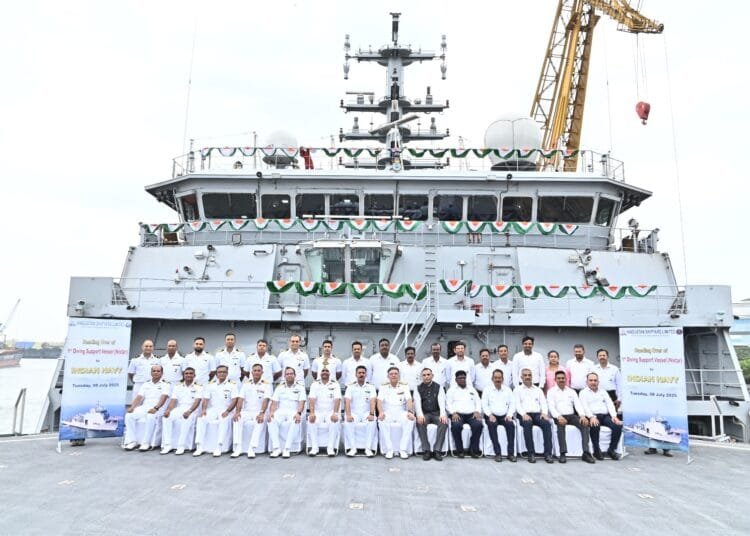Aims to triple bilateral trade
India and Iran are set to expand their economic relations at a fast pace with a proposal to set up a joint chamber of commerce between the two countries following on to the investment in Chabahar port and approval for Iranian bank to open a branch in Mumbai.
Iranian Foreign Minister Dr Mohammad Javad Zarif made a three-day official visit to New Delhi, 7-10 Jan 2019, expressing strong desire to build on the two countries’ engagements of over a Millennia. It was rated by the Iranian media as a visit by “high ranking political and economic delegation”.
The two countries’ engagements include trading relationship and it is heartening to see that this engagement continues, said Dr Zarif stressed at the inaugural session of the India – Iran Business Forum jointly organized by the Confederation of Indian Industry (CII) and the Iranian Embassy on 8 Jan 2019.
Dr Zarif pointed out that Iran and India have been working and living together for centuries with strong economic relationships.
Iran has been one of India’s major suppliers of energy and urea fertilizers.
While Iran has always relied on its domestic population to support its growth and development objectives, it is always keen to explore complementarities with other countries, he said.
He also sees India and Iran learning a lot from each other such as knowledge economy.
Dr Zarif acknowledged existing challenges faced by his country from the outside world but assured that his country has always managed to survive and work with the sanctions in place. These sanctions never impair Iran’s economic relationships, such as the one it has with India.
There is a need to examine how the India–Iran relationship was built previously, and to explore how it can be strengthened going further, added Gen. (Dr) V. K. Singh (Retd), India’s Minister of State for External Affairs.
Iran has always been a close partner of India but there exist opportunities to deepen this engagement further, he said.
Gen. Dr Singh sees the potential of doubling to tripling the current US$13 billion bilateral trade.
Iran and India can widen and deepen cooperation in engineering goods and pharma and the two countries should explore how to increase exports of Indian agricultural and food processing products to Iran.
Iran can also expand its trade with India.
Saffron and organic chemicals are two of the most readily identifiable areas.
Gen. Dr Singh urged the Indian-Iranian Industries to explore opportunities together.
Iranian Ambassador Dr Ali Chegni called for exploring a Joint Chamber of Commerce between the two countries to facilitate visits by business delegations and enhance bilateral economic ties.
Gholamhossein Shafei, President, Iran Chamber of Commerce Industries, Mines and Agriculture (ICCIMA), elaborated that Iran’s private sector is ready to cooperate with Indian Industry.
He called for a preferential trade arrangement between the two countries.
Iran looks forward to strengthening banking relationships with India. But the replacement of dollar trade with local currencies have caused some issues, according to Shafei.
Iranian companies are also keen to partner with Indian companies in the field of medicine.
He called for further Indian investments in the Chabahar Free Trade-Industrial Zone as it can create a powerful economic hub and export link to the regional markets.
The development of International North South Transport Corridor via Iran can reduce India’s transportation costs to Commonwealth of Independent States.
The two countries have the potential to be natural partners in the South, Central and West Asian regions given their common interests, geographical proximity and regional realities, added Tarun Sawhney, Member, CII International Council.
India’s relationship with Iran is driven by its need for energy security, countering terrorism and building infrastructure to improve connectivity in the region, said Sawhney, who is also a Vice Chairman and Managing Director of Triveni Engineering and Industries.
A Memorandum of Understanding was signed between CII and ICCIMA as a step forward to discuss and deliberate how the opportunities present can be leveraged.
Zarif led a high-ranking political and economic delegation, to push for the promotion of trade ties between the two countries. He was accompanied by senior executives from scores of Iran’s public and private companies.
He delivered a speech at the annual Raisina Dialogue during his three-day stay in the Indian capital.
The annual Raisina Dialogue is a multilateral conference held by India’s Observer Research Foundation (ORF) to address the challenging issues of the international community. fiinews.com









